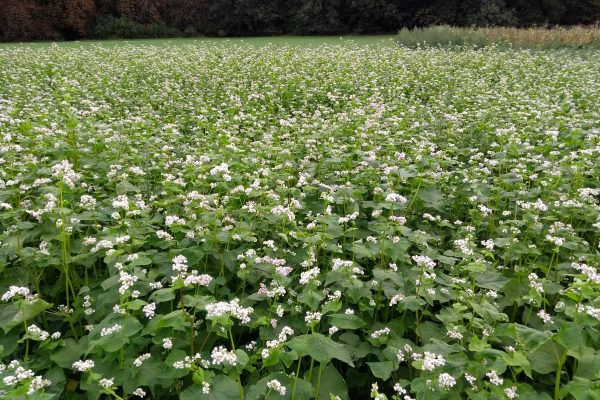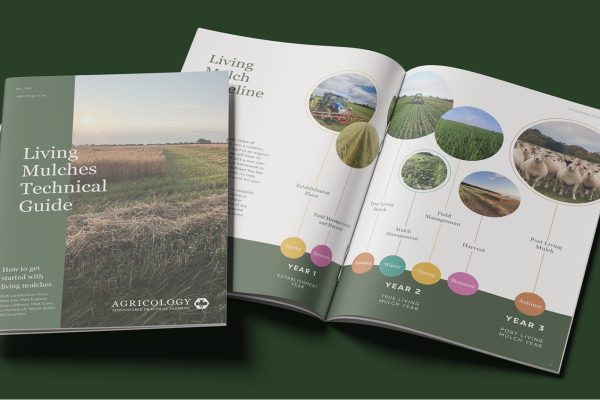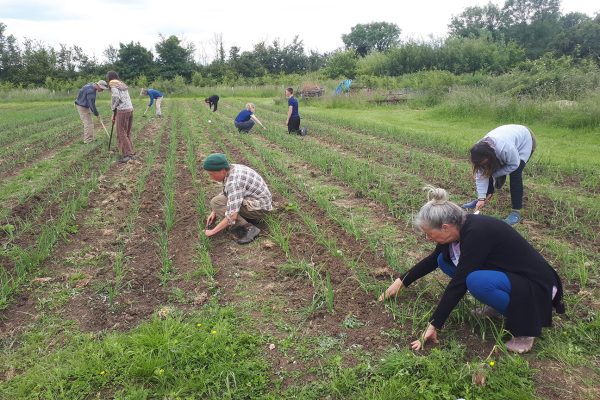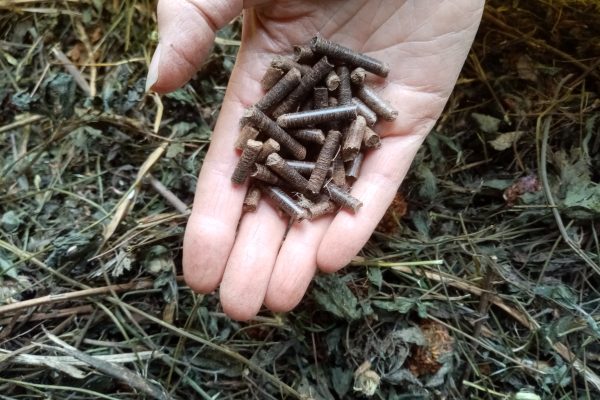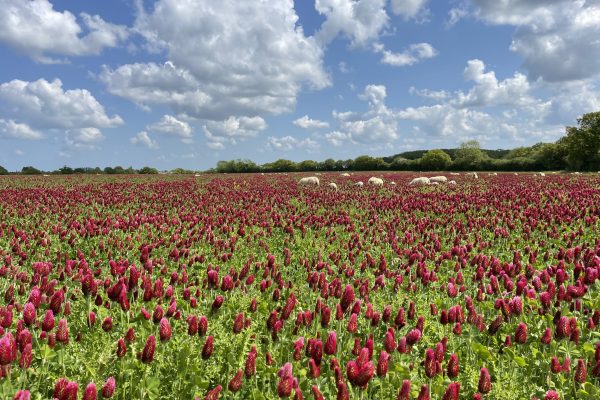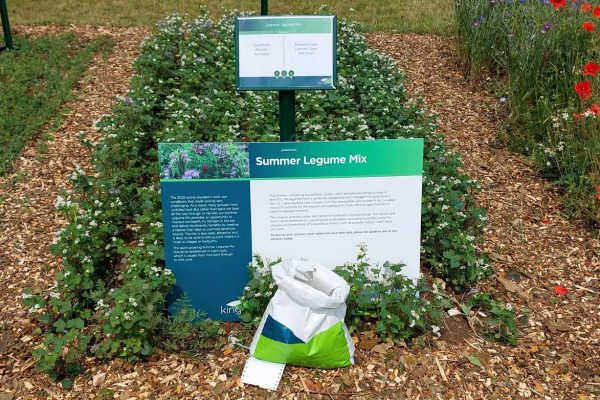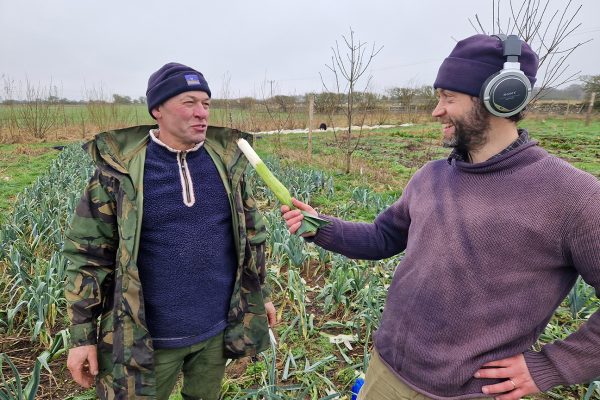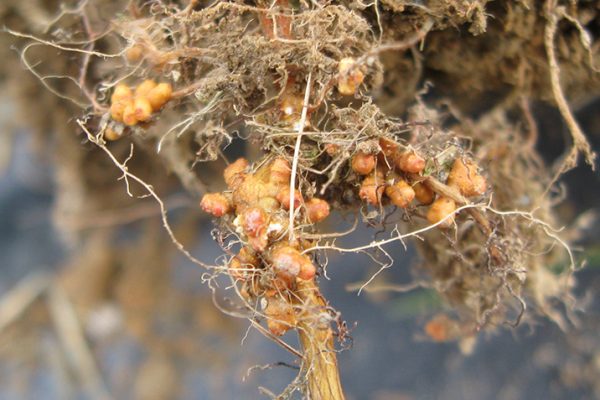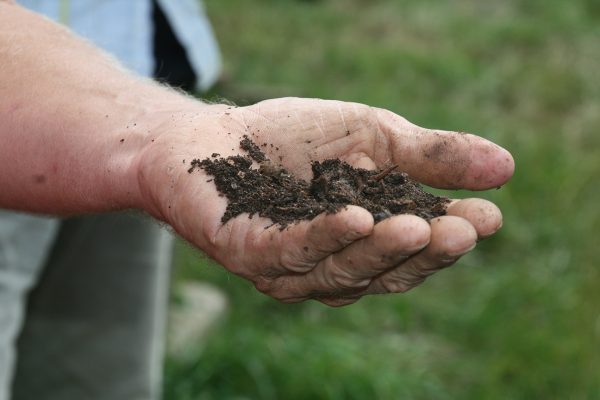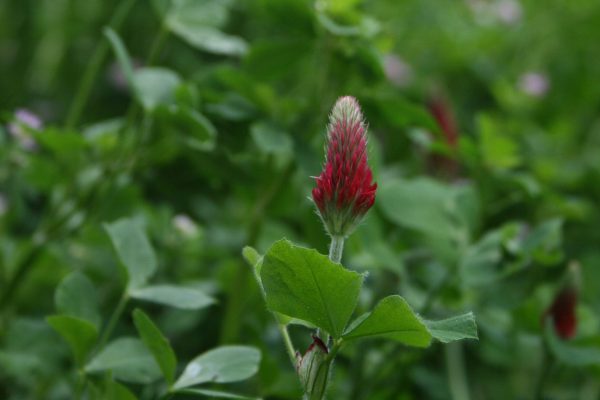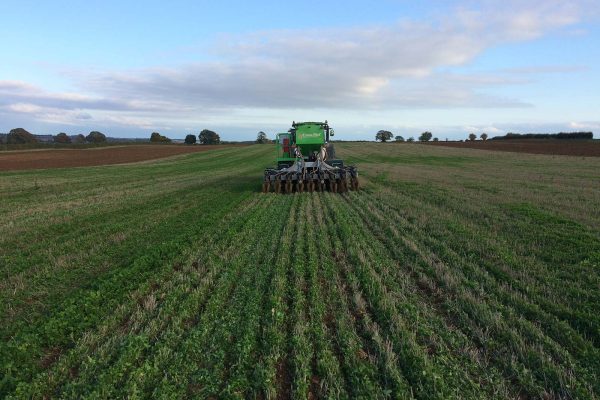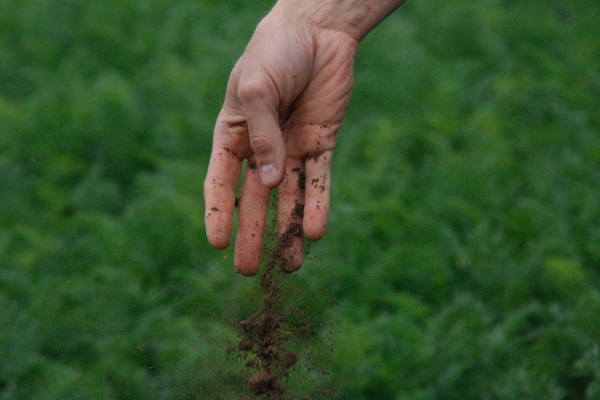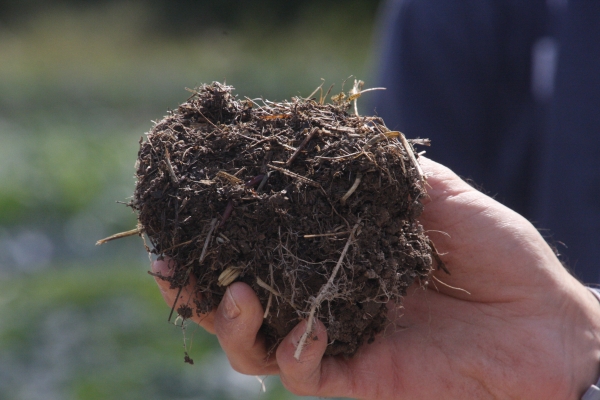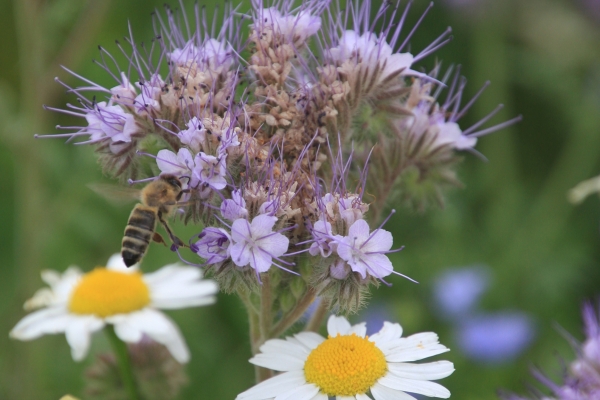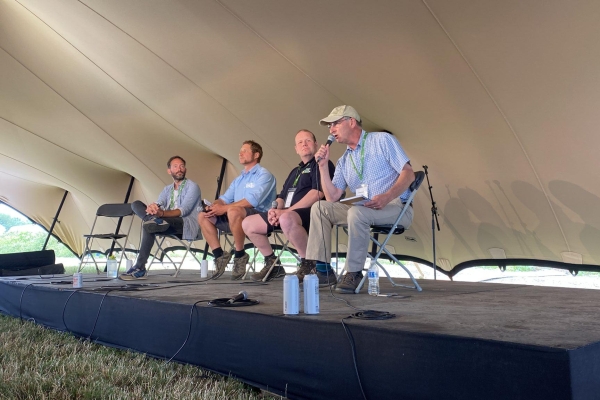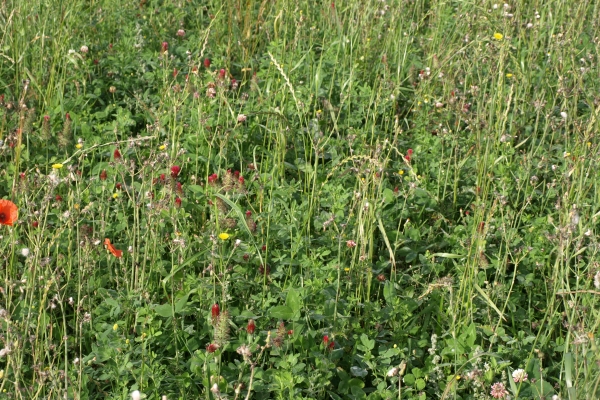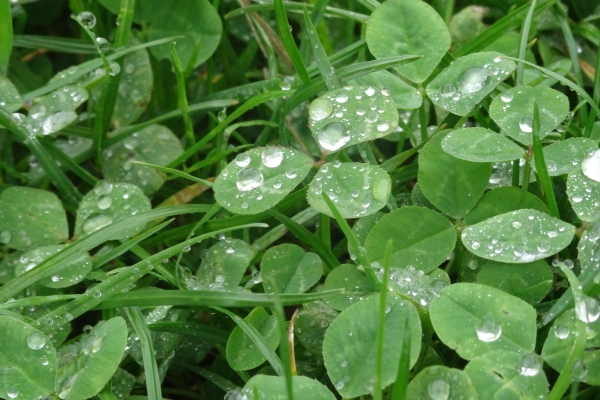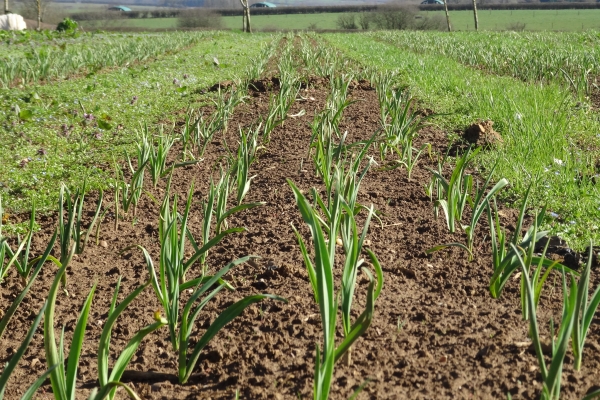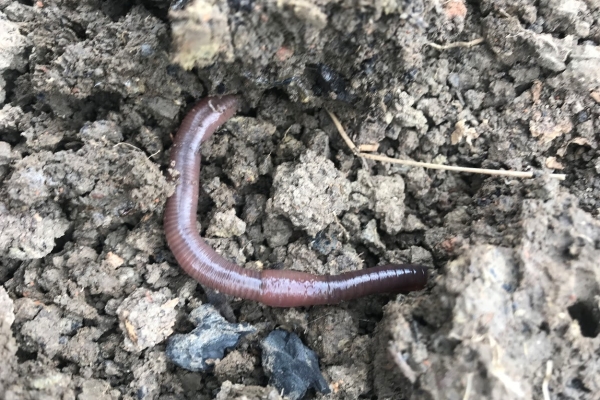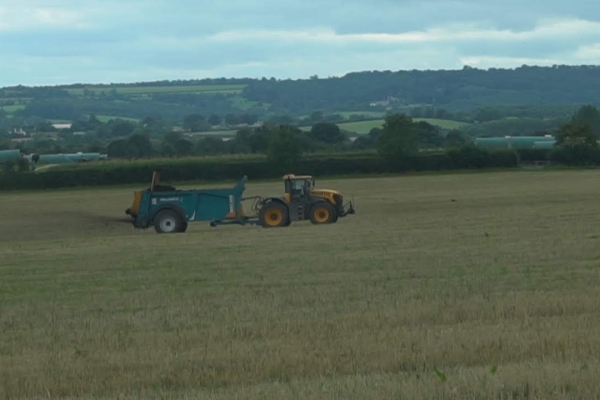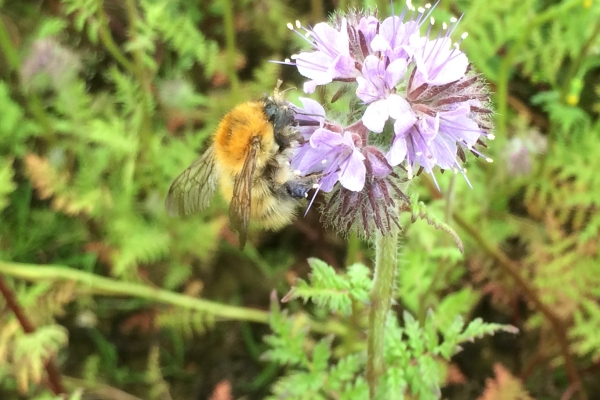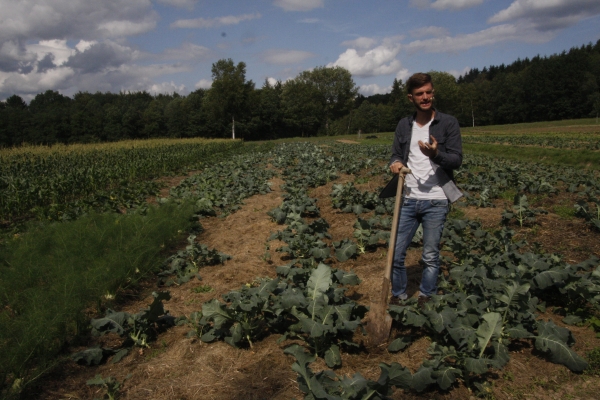Living Mulches - Technical Guide - video
In this video Matt England talks through his journey of trialling living mulches with the key learnings, observations and reflections that have come from it.
LEARN MOREIn this video Matt England talks through his journey of trialling living mulches with the key learnings, observations and reflections that have come from it.
Innovative farmers webinar with conclusions and recommendations from the field lab on using cover and biofumigant crops to reduce wireworm populations in potatoes
OGA webinar on using cover crops and diverse mixes in no-till veg production to improve soil and reduce reliance on bought-in compost.
This Agricology technical guide is designed to support farmers in making informed decisions about adopting living mulches in arable systems.
Cultivating Wisdom’ is a collection of agroecological research summaries from practitioners in the Landworkers’ Alliance’s ‘Experts in Your Field’ project.
This report summarises findings from the Perennial Green Manures project highlighting the potential of PGMs as fertilisers and further areas of research and innovation needed.
Footage of a Groundswell 2024 panel discussion organised by Agricology, exploring the practicalities of reintroducing sheep into your business.
Footage of a Groundswell 2024 panel discussion organised by Agricology and The Allerton Project, with the panel and audience members sharing their experiences of growing cover crops.
The Organic Grower Podcast is an OGA initiative which aims to be practical in focus, getting straight into the nitty-gritty of people’s growing practices and business operations.
This Innovative Farmers webinar provides an update on research into perennial green manures and opportunities to get involved in a field lab.
Session from 2024 Oxford Real Farming Conference featuring grower Iain Tolhurst (Tolly) and "biological nutrition" farmer Tim Parton discussing soil health at scale.
DiverIMPACTS case studies across Europe highlight why crop diversification strategies have been successful and what challenges needed to be overcome to achieve success.
The final report for Innovative Farmers field lab trials which aimed to determine the impacts of living mulches on cash crop yields and weed composition.
Recording of an Organic Growers Alliance's Organic Matters 22 conference session exploring stockfree organic standards and carbon sequestration, mobile green manures, Organic-PLUS trials on fertility-building inputs, grower experiences, and featuring discussions on research priorities.
FiBL booklet offering a view on soil fertility from different angles to stimulate new thinking about a sustainable relationship to the soil.
This publication from the Landworkers' Alliance highlights what pioneers of agroecology in the UK are doing to create a productive and sustainable agriculture.
Footage of a discussion held at Groundswell 2022, organised by Agricology, about the impacts of reduced nitrogen use and ways in which farmers are moving away from high input systems.
Practice abstract created as part of the DiverIMPACTS project outlining some of the many advantages to more complex mixtures of leguminous leys and some of the challenges and key practical considerations.
This webinar (part of the 2021 Northern Real Farming Conference and hosted by the Soil Association) explores growing a low growing permanent cover crop such as small white clover to help shade out weeds and provide fertility for the rotation.
Abstract created as part of the DiverIMPACTS project, outlining outcomes from strip cropping experiments and practical recommendations for designing and managing effective strip systems.
A Soil Biology and Soil Health Partnership case study expaining the scorecard that has been developed to help farmers measure and manage soil health and detailing some test results that reveal interesting insights into different management systems and their impact.
A Soil Biology and Soil Health Partnership case study explaining the scorecard that has been developed to help farmers measure and manage soil health, and detailing results from a long-term experimental site at Harper Adams University, which is investigating the impact of adding organic material at recommended rates on soil and crop quality in a predominantly arable rotation.
A GREATsoils factsheet detailing the main green manure species suitable for use in high value vegetable and salad rotations and summarising benefits they can bring
Organic Grower article explaining a system German grower Johannes Storch created using cover crops, grass and silage as mulch and the MulchTec planter he and his team invented to plant through the mulch.


